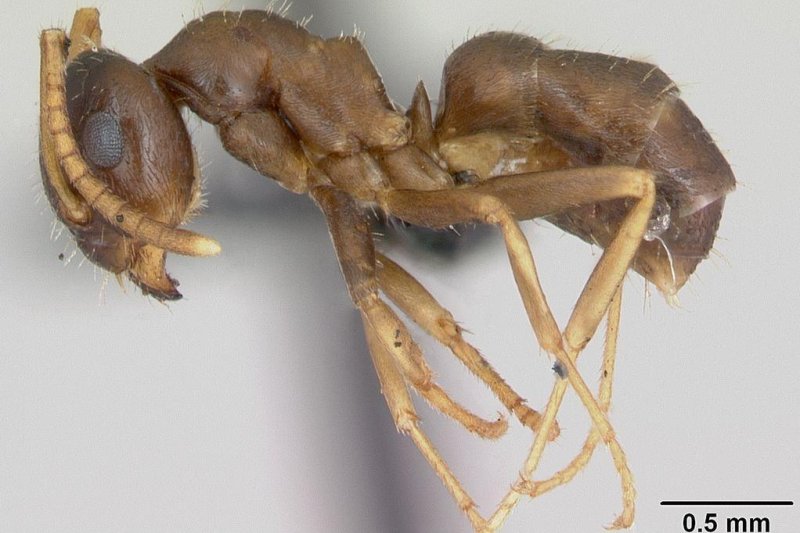A Lasius neglectus worker ant. Photo by April Nobile/AntWeb.org/Wikimedia/CC
Jan. 9 (UPI) -- New research suggests purging is an important part of an ant colony's defense against infection.
An international team of scientists from Europe and Australia found Lasius neglectus ants sacrifice peers that have grown too sick to be cared for and nursed back to health. The sick ants are killed to prevent the spread of infection.
Researchers studied ants' behavioral responses to specimens infected with Metarhizium, a deadly fungus that can spread from ant to ant. They published the results of their study this week in the journal eLife.
"The ants could smell if members of their colony were fatally ill," Christopher Pull, a researcher at Royal Holloway, University of London, said in a news release. "This fungus becomes a danger to the whole colony if even one ant sporulates with it, so the ants have formulated an effective way to deal with it: kill their fatally infected colleagues."
Tests showed the ants sacrifice their peers by injecting them with formic acid, which kills the fungus as well as the infected party.
"The ants do try to get rid of the fungus first," said Sylvia Cremer, a professor at the Institute of Science and Technology Austria. "They care for the pathogen-contaminated colony members by intensively grooming their bodies to get rid of the fungus spores. If this doesn't prevent infection, however, they kill the infected colony members."
Ants produce hydrocarbons on their exoskeleton. The compounds serve as a communication mechanism. Scientists found sick ants produce extra hydrocarbons, advertising their ill health.
Human cells behave in similar ways. Infected cells give off chemical signatures to help the immune system identify and attack them.
"This is a really interesting finding," said Pull. "Ants in a colony work together like cells in a body, with healthy ants acting like white blood cells to kill off other ants they perceive as a threat."















